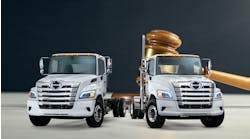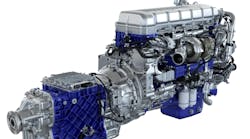Timing is everything, and in my last post, we touched on why now is a good time for fleet owners to transition diesel vehicles to clean-burning, American-made propane autogas. Propane can cut operating costs by an average of 40 percent compared to conventional fuels.
The first step was to assess your current fleet situation. The next step is to choose who will provide the propane fuel system for those vehicles. One key decision to make is whether you plan to convert your existing vehicles or replace them with new ones. If you’re choosing to convert existing vehicles, it’s important to learn how much time your existing vehicles will be out of commission.
Other questions to consider include:
- What fuel system technology does the vehicle modifier offer? Propane vehicles use either a carbureted vapor system or a liquid propane injection system. Liquid injection costs a bit more, but has benefits related to power, torque and overall vehicle performance.
- What certification does the vehicle modifier have? Propane vehicle conversions in the United States require U.S. Environmental Protection Agency and/or California Air Resources Board (CARB) certification. Make sure your modifier of choice has it.
- Is the vehicle modifier preparing to be compliant with heavy-duty onboard diagnostics II? In the past, alternative fuel vehicles were exempt from HD-OBD II regulations. Starting with the 2018 model year engine, they must comply similar to gasoline and diesel vehicles.
- What is the vehicle warranty? This can vary substantially. Ford, for example, guarantees the original Ford factory warranty when vehicles are purchased by one of its Qualified Vehicle Modifiers.
- What support will I get after purchasing my vehicle? You’ll want to work with a vehicle modifier that will provide service and support throughout your vehicle’s lifecycle.
If you’d like to learn more about propane autogas systems, this page outlines the components ROUSH CleanTech engineers and manufactures.
Watch this space for the next step in transitioning to propane: determining a fueling strategy. Or join the conversation here.


